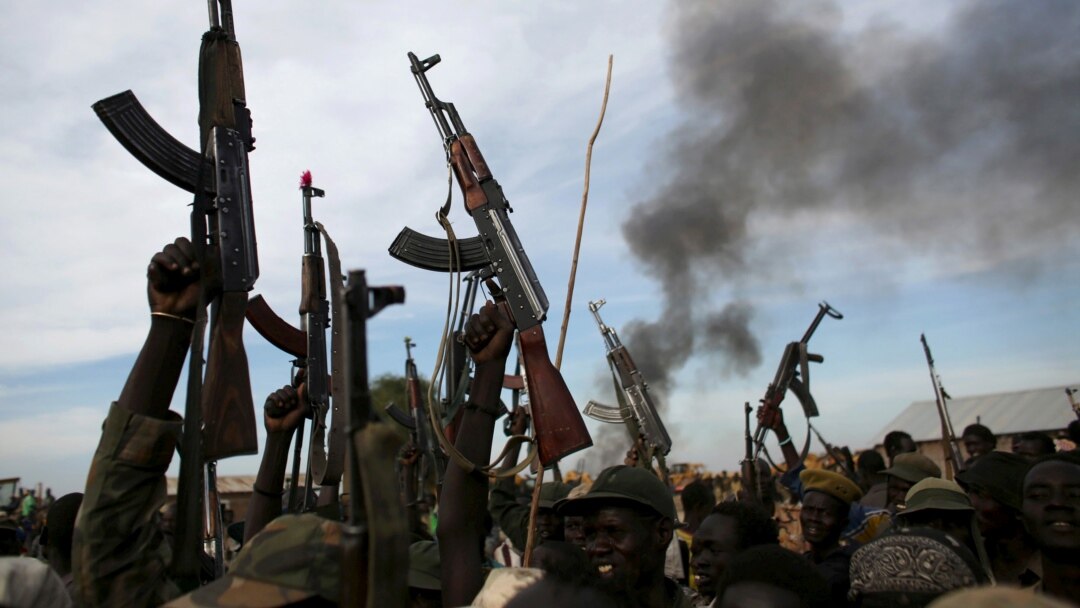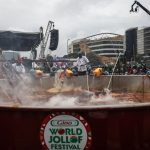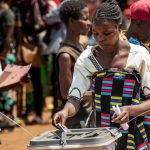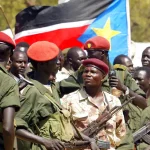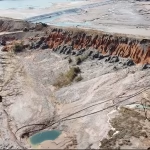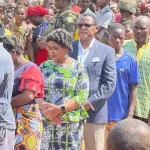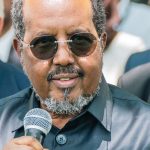South Sudan, the world’s youngest nation, is once again standing at the edge of uncertainty as a high-profile treason case has sparked fear that the country could slide back into civil war. The trial of senior political figures accused of plotting against the state has not only shaken the fragile peace but has also reignited long-standing ethnic and political tensions. For a country that endured a bloody civil war from 2013 to 2018, costing nearly 400,000 lives and displacing millions, the mere mention of treason carries the heavy weight of history. Communities across the nation are watching the courtroom drama unfold with unease, worried that a judicial proceeding could unravel years of fragile reconciliation. As the trial plays out, it is not just a matter of guilt or innocence—it is about the future stability of South Sudan, the trust in its institutions, and the hopes of a people who have seen too much war.
- The Background of South Sudan’s Fragile Peace
- The Treason Case That Shocked the Nation
- Why the Treason Case Raises Civil War Fears
- The Role of Ethnic and Political Divisions
- International Reactions and Mediation Efforts
- The Humanitarian Stakes of Renewed Conflict
- The Struggle for Justice and Rule of Law
- Voices from the Ground: How Citizens See the Trial
- The Road Ahead: What Can Prevent a Return to War
- FAQs
- What is the treason case in South Sudan about?
- Why are people worried about civil war returning?
- How does the treason trial affect ordinary people?
- What role is the international community playing?
- Can South Sudan’s judiciary handle the trial fairly?
- Conclusion
The Background of South Sudan’s Fragile Peace
South Sudan’s independence in 2011 was heralded as a moment of triumph after decades of conflict with Sudan. However, the joy was short-lived. In 2013, political rivalries between President Salva Kiir and his then-deputy Riek Machar triggered a devastating civil war. The conflict quickly turned ethnic, pitting Kiir’s Dinka community against Machar’s Nuer supporters, leading to mass atrocities, famine, and the displacement of millions.
The 2018 peace deal, brokered with international support, brought a fragile truce. Kiir and Machar agreed to share power in a unity government. Yet, mistrust has remained deeply rooted. According to the International Crisis Group, localized violence has persisted in parts of the country, while disarmament and reconciliation efforts have struggled. Now, the treason case threatens to undo the fragile balance by reviving suspicions of political conspiracies and deepening ethnic divides.
The Treason Case That Shocked the Nation
At the center of the storm are several political and military leaders accused of plotting to overthrow the government. Authorities claim to have uncovered evidence of a conspiracy to destabilize the state, with allegations ranging from secret meetings to mobilizing armed groups. While the government insists it is acting to protect national security, opposition groups argue that the case is politically motivated, designed to silence dissent and weaken rivals ahead of upcoming elections.
The trial is unfolding under tight security in Juba, with soldiers patrolling court premises and journalists facing restrictions. Civil society organizations have raised concerns about due process, citing limited access to defense lawyers and reports of intimidation. For many citizens, the treason case is not merely about legal proceedings—it is a litmus test of whether South Sudan can uphold the rule of law without sliding into authoritarianism or renewed conflict.
Why the Treason Case Raises Civil War Fears
South Sudanese citizens are haunted by memories of how quickly political disputes have previously escalated into armed conflict. The civil war of 2013 started as a political disagreement but spiraled into one of Africa’s deadliest wars in recent history. Many fear that labeling opposition figures as traitors could reignite similar divisions.
Experts warn that such trials carry high stakes in fragile states. Political analyst Jok Madut Jok told regional media that “charging opposition leaders with treason in a polarized society is like striking a match in a room full of fuel.” If the accused leaders have significant followings, their supporters may interpret the charges as persecution, potentially sparking unrest. Already, reports suggest that communities aligned with the accused are rallying in their defense, a sign of how volatile the situation could become.
The Role of Ethnic and Political Divisions
Ethnicity remains a defining fault line in South Sudanese politics. The treason case risks inflaming ethnic loyalties, with supporters of the accused framing the trial as a targeted attack on their communities. South Sudan’s history shows that when political disputes become entangled with ethnic narratives, violence often follows.
Community leaders have expressed alarm that government rhetoric could deepen mistrust. In areas like Unity State and Jonglei, whispers of revenge and mobilization are growing. International observers caution that even a localized flare-up could quickly spread, given the prevalence of armed groups and the weakness of state security forces.
International Reactions and Mediation Efforts
The international community has responded cautiously to the treason trial. The United Nations Mission in South Sudan (UNMISS) has urged authorities to ensure fairness and transparency, warning that political trials risk undermining peace. The African Union has also called for restraint, emphasizing dialogue over confrontation.
Western donors, who fund much of South Sudan’s humanitarian aid, are watching closely. The United States, which played a pivotal role in South Sudan’s independence, has hinted at possible sanctions if the trial destabilizes the peace process. Meanwhile, neighboring countries fear that renewed instability could trigger a fresh wave of refugees, adding pressure to already strained borders.
The Humanitarian Stakes of Renewed Conflict
The consequences of South Sudan sliding back into war would be catastrophic. The country is already grappling with one of the world’s worst humanitarian crises. According to the World Food Programme, more than 7 million people—over half the population—face severe food insecurity. Ongoing flooding and climate shocks have worsened conditions, displacing hundreds of thousands.
If political tensions ignite violence, humanitarian agencies warn of disaster. Camps for displaced people remain overcrowded, with limited access to clean water, healthcare, and education. A return to widespread fighting could trap millions more in cycles of displacement and hunger. For ordinary South Sudanese, the treason case is not just politics—it is about survival.
The Struggle for Justice and Rule of Law
One of the most pressing questions is whether South Sudan’s judiciary can handle the treason case independently. The country’s legal system has long faced accusations of being politicized, underfunded, and lacking credibility. Human rights groups argue that without meaningful reforms, trials like this will always be viewed with suspicion.
Transparency is key. If the trial is seen as fair, it could strengthen public trust in institutions. But if it is perceived as a witch-hunt, it could erode confidence in the government and fuel opposition. As Amnesty International noted in a recent report, “justice must not only be done—it must be seen to be done.”
Voices from the Ground: How Citizens See the Trial
Interviews with South Sudanese citizens reveal deep anxieties. Many express frustration that political elites continue to fight for power while ordinary people suffer from poverty and insecurity. A teacher in Juba told reporters, “We want peace, not politics. Every time they say treason, we know war may follow.”
Youth groups, who make up the majority of the population, are particularly vocal. Social media platforms have become spaces where young South Sudanese debate whether the treason trial is legitimate or simply another round of political theater. Their voices reflect a generation weary of war, yet uncertain whether leaders are truly committed to peace.
The Road Ahead: What Can Prevent a Return to War
Preventing a return to civil war will require more than managing a courtroom trial. Analysts highlight three key steps: inclusive dialogue, strengthening the rule of law, and addressing root causes of conflict such as inequality, corruption, and lack of development.
International partners can play a role by pushing for mediation and supporting reforms. However, the ultimate responsibility lies with South Sudanese leaders themselves. If they prioritize national unity over political rivalry, the treason trial could become an opportunity to strengthen institutions rather than weaken them.
FAQs
What is the treason case in South Sudan about?
The treason case involves senior political and military leaders accused of plotting to overthrow the government. Authorities allege conspiracies ranging from secret meetings to mobilizing armed groups, while critics argue the case is politically motivated.
Why are people worried about civil war returning?
South Sudanese citizens fear that labeling opposition leaders as traitors could reignite ethnic and political tensions similar to those that fueled the 2013–2018 civil war, which killed hundreds of thousands and displaced millions.
How does the treason trial affect ordinary people?
For ordinary citizens, the trial heightens insecurity and threatens to disrupt daily life. Many worry that renewed conflict could worsen hunger, displacement, and violence, adding to an already dire humanitarian crisis.
What role is the international community playing?
The United Nations, African Union, and Western countries are urging transparency and restraint. They have warned against politically motivated trials and hinted at possible sanctions if the case destabilizes peace.
Can South Sudan’s judiciary handle the trial fairly?
The judiciary has been criticized for lacking independence and resources. If the trial is transparent and fair, it could boost confidence in the rule of law. If not, it risks being seen as a political weapon, undermining trust in institutions.
Conclusion
South Sudan is once again at a dangerous crossroads. The treason case may seem like a legal matter, but in a country scarred by war, it carries the weight of national survival. Whether it becomes a catalyst for renewed conflict or an opportunity to strengthen institutions depends on how leaders choose to act in the coming weeks. For a nation where millions still dream of peace, the stakes could not be higher. South Sudan’s leaders have a chance to prove that the future will not repeat the past, but only if they choose dialogue, justice, and unity over division and mistrust.

